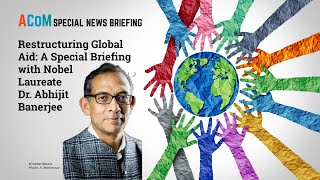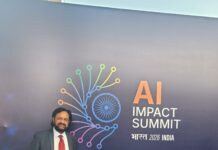Vidya Sethuraman
India Post News Service
American Community Media, in partnership with the South Asian Literary Association presented a special newsmaker briefing with Nobel Laureate Dr. Abhijit Banerjee, who spoke on the urgent need to restructure global aid to truly benefit the world’s most vulnerable communities. Professor Banerjee was awarded the 2019 Nobel Prize in Economics alongside his wife Dr. Esther Duflo, and Dr. Michael Kremer for pioneering the use of randomized controlled trials in development economics. He has transformed how policymakers and governments understand poverty alleviation.
Dr. Abhijit Banerjee, Professor of Economics at MIT, and co-founder of the Abdul Latif Jameel Poverty Action Lab pointed out that the past 20 years have been a period of significant improvement in extreme poverty around the world. Extreme poverty rates have dropped significantly, maternal and infant mortality rates have dropped by half, children’s school enrollment rates have increased overall, and educational opportunities for girls have increased significantly, especially in India, China, and many other developing countries. However, recent changes in U.S. global aid funding and the reallocation of Western countries’ defense budgets are having a knock-on effect on these positive results.
He specifically mentioned the humanitarian crises in countries such as Syria, South Sudan, Sudan, Somalia and the Democratic Republic of the Congo. Children in these areas face severe malnutrition and even starvation due to war, drought, or a combination of both. The reduction in U.S. aid has left local non-governmental organizations strapped for funding. Many organizations have had to scale back or close projects. The contraction of aid infrastructure may lead to a large loss of life in the short term. He emphasized that cuts in U.S. funding for global vaccination and AIDS prevention and treatment will increase the risk of preventable diseases and AIDS-related deaths, raising concerns about global health security.
Banerjee pointed out that middle-income countries such as China, India, Brazil and South Africa can provide assistance to a limited extent, but it is difficult to completely replace the global influence of the United States.
Also Read: Nobel Economics Prize awarded for research into differences in prosperity between nations







